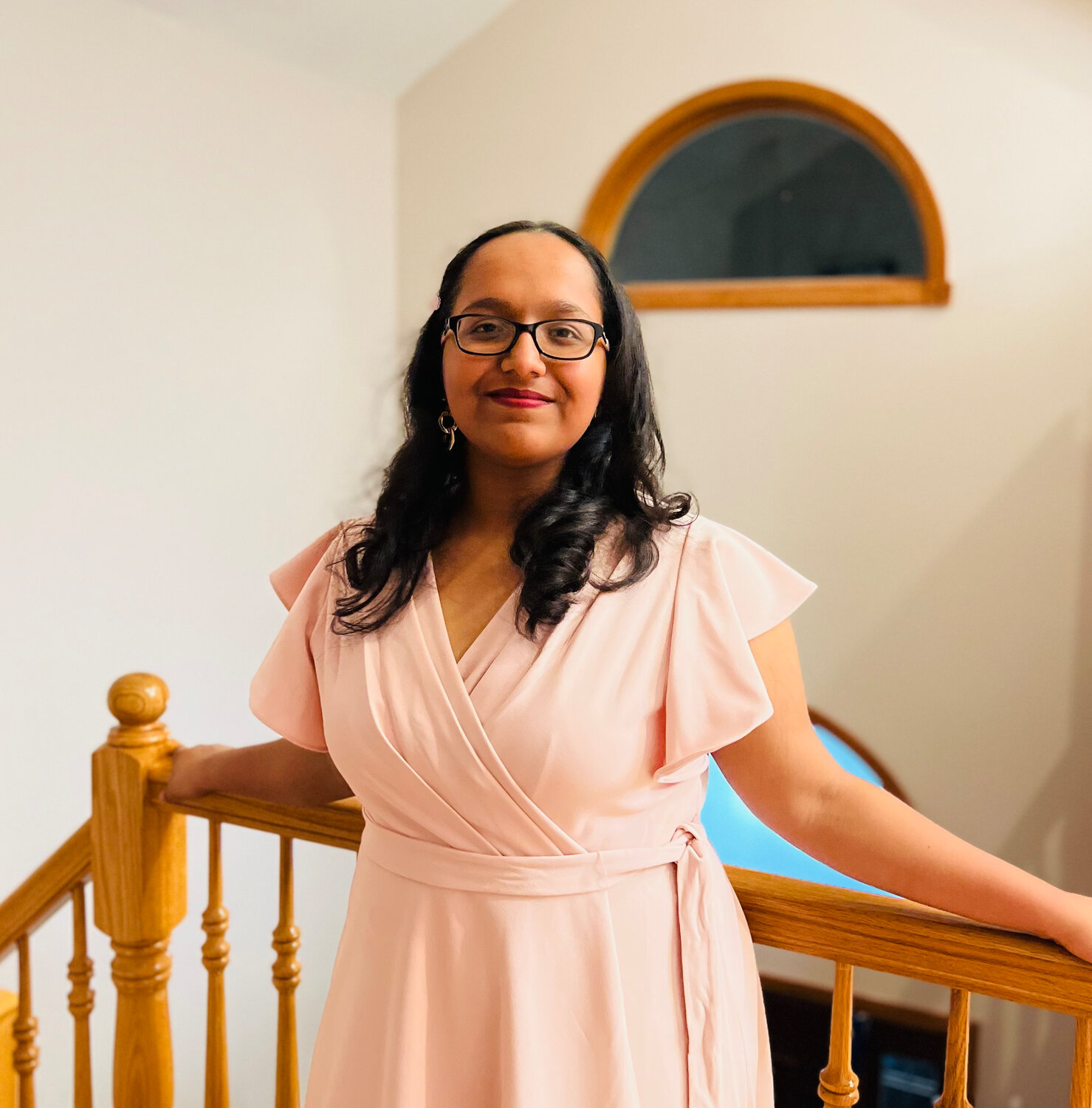Sewanhaka graduate’s work published in international journal
Anjali Paul, a 2023 graduate of Sewanhaka High School, turned her back pain into an important research project on stress levels in Asian adolescents.
Paul’s AP Capstone research paper, titled “The effect of the thinking and feeling preferences in Myers-Briggs Type Indicator (MBTI) on perceived stress levels in Asian adolescents,” has been published in the prestigious International Public Health Journal.
Initially, Paul found research indicating that Asians perceive more stress than other races, with correlations between the Myers-Briggs thinking/feeling scale — which quantifies how people perceive the world and make decisions — and stress levels in adults. Her research paper, which she completed in her junior year, addressed the question of whether the scale corresponds to stress in Asian adolescents.
The research hit home with Paul because, after a sophomore year of taking AP classes, she had experienced severe back pain. Several doctors failed to diagnose her problem, and she finally saw a chiropractor, who determined that it was caused by stress.
Paul then found a Myers-Briggs survey online, and created her own stress survey, sending them out to 11th-grade Asian students across Nassau County and receiving 48 usable responses.
Her teacher, George Tsolekas, described Paul as “intelligent, determined and tenacious.”
“She was determined, she was independent, she made sure she’d reach out to cover her bases,” Tsolekas said.
Paul found no conclusive evidence of a correlation between the Myers-Briggs thinking/feeling scale and stress, but her project left open many variables that could be explored in future research.
“I had to go above and beyond to explain my topic thoroughly,” Paul said.
The purpose of the AP Capstone research class is for students to write a paper on a topic that hasn’t been addressed by other research. Topics are usually finalized in late September or October, but Paul didn’t find hers until November 2021.
“I’d like to say I stayed calm throughout the process,” Paul, who plans to attend LIU C.W. Post in the fall, said. “Since I had a late start compared to the rest of my peers, I had to work extra hard.”
When she found her topic, she had to explain to Tsolekas what the Myers-Briggs scales entailed. Even though she started late, he said, he didn’t doubt that she could accomplish her goal.
“I was like, ‘I believe in your confidence,’ and she always knew what she was talking about,” Tsolekas said. “She was very clear on the road and the path that she needed to take.”
Paul said that getting her research published in a peer-review journal means the world to her. She joked that she spent more time working on her paper than she did sleeping during the school year.
“Being able to get it published — it just makes me feel like all the hard work that I put in is finally showing,” she said.
She initially submitted a 46-page paper to the College Board, but she condensed it to 16 pages for the journal. She first thought of publishing her research in the journal when she started sending out the surveys, but once her work was finished, Tsolekas finally persuaded her to publish it.
“I didn’t think of any of the consequences,” Paul said. “I just went with it.”
They spent last summer submitting the paper to various journals, receiving some very positive rejections that Tsolekas said would suggest other places might be more appropriate for publication — but they never gave up.
“That’s really the most impressive thing,” Tsolekas said. “She was excited about what she was doing.”
The editor-in-chief of the journal, Joav Merrick, said that Paul’s paper went through the same process as every other paper in the journal. Each paper is sent for peer review, and if accepted, the editor writes to the author about publishing it. He said this process takes a long time.
Paul said she believes she’s the first high school student from Sewanhaka to have research published in a peer review journal. “My mom gave me a huge hug,” Paul said. “My dad gave me a huge smile. They were like, ‘Anjali, this is it.’”
Researching this paper made her briefly think she wanted to be a researcher and study science in college, but her grandfather, who works in a bank, suggested that she should pursue a career in accounting.
“She could literally do anything she wants to do,” Tsolekas said.
Paul, who plans to study accounting at LIU in the fall, said, “If you have a goal, you should strive for it. Don’t think of all the negatives in the situation. Think that you can do it, and it’s possible.”






